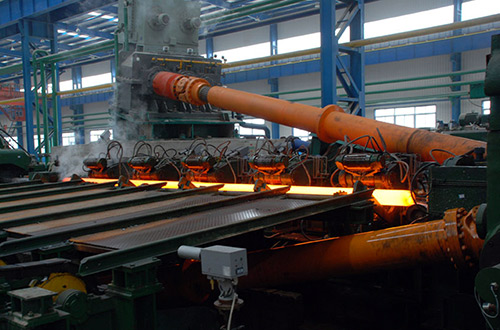Table of Contents
Understanding the Role of Seamless Casing and Tubing in Oilfield Services: An In-depth Look into API-5CT Standards
Seamless casing and tubing play a pivotal role in oilfield services, providing the necessary infrastructure for drilling and extraction operations. These components are integral to the successful operation of oilfields, and their quality and reliability are of paramount importance. To ensure this, the American Petroleum Institute (API) has established a set of standards known as API-5CT, which governs the manufacture and use of seamless casing and tubing in oilfield services.
Seamless casing and tubing are essentially Steel Pipes that are used in oil drilling operations. The casing is a large-diameter pipe that serves as the structural retainer for the walls of oil and gas wells, preventing the well from collapsing and protecting groundwater from contamination. Tubing, on the other hand, is a smaller-diameter pipe that is used to transport Crude Oil or Natural Gas from the well to the surface. Both casing and tubing must be robust and durable to withstand the harsh conditions of oilfield operations.
The API-5CT standards are designed to ensure the quality and reliability of these critical components. They specify the technical delivery conditions for steel pipes, including their chemical composition, mechanical properties, and manufacturing methods. The standards also provide guidelines for inspection, testing, and certification to ensure that the pipes meet the required specifications.

One of the key aspects of the API-5CT standards is the classification of the steel grade. The standards specify different grades of steel for casing and tubing, each with its own set of properties and applications. For instance, the J55 and K55 grades are typically used for casing, while the N80 grade is commonly used for tubing. These grades are designed to withstand different Levels of pressure, temperature, and corrosive environments, ensuring the Safety and efficiency of oilfield operations.
Another important aspect of the API-5CT standards is the specification of Thread types. The standards define various thread types for casing and tubing, including short round thread casing (SC), long round thread casing (LC), buttress thread casing (BC), non-upset tubing (NU), and external upset tubing (EU). These thread types are designed to provide a secure and leak-proof connection between the pipes, ensuring the integrity of the well and the safety of the operation.
The API-5CT standards also provide guidelines for the inspection and testing of casing and tubing. They specify the methods for visual inspection, dimensional inspection, and non-destructive testing to detect any defects or anomalies in the pipes. The standards also require the manufacturer to provide a certificate of compliance, confirming that the pipes meet the required specifications.
In conclusion, seamless casing and tubing are critical components in oilfield services, and their quality and reliability are ensured by the API-5CT standards. These standards provide a comprehensive framework for the manufacture, inspection, and certification of casing and tubing, ensuring the safety and efficiency of oilfield operations. By adhering to these standards, oilfield service providers can deliver reliable and high-quality services to their clients, contributing to the sustainable development of the oil and gas industry.
